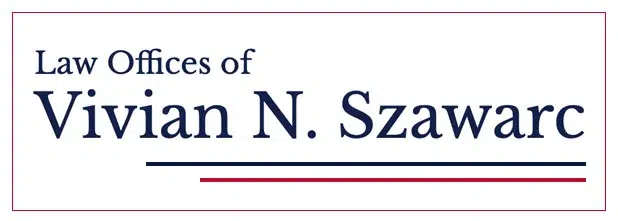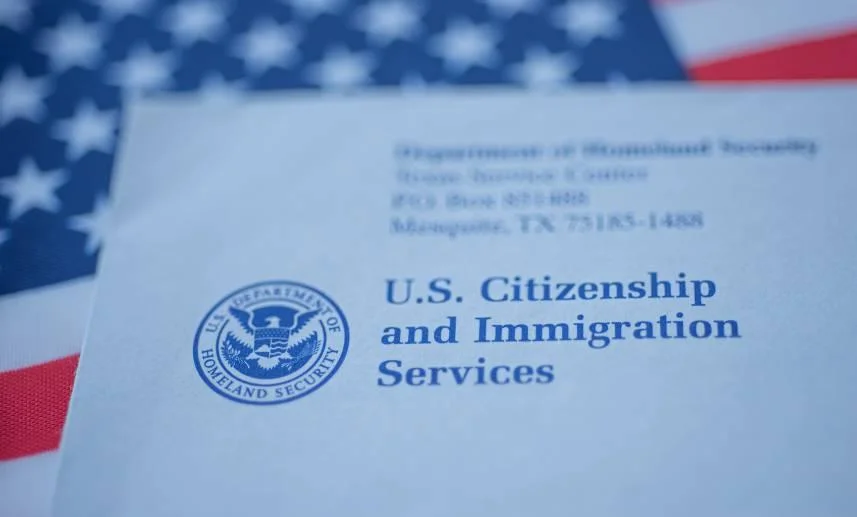Temporary Restraining Orders and Permanent Restraining Orders: Legal Protection in Cases of Violence
In cases of violence, each situation is analyzed in detail to ensure that the appropriate sentence is provided. The issuance of protective orders, temporary restraining orders and permanent restraining orders depends on the analysis of prosecutors and legal defense, and falls to the decision of a judge.
Temporary Restraining Order: A temporary restraining order is one that has a specific duration determined by the court. Under the law, the aggressor is prohibited from approaching the protected person during this period. However, the seriousness of the case may lead the judge to impose additional restrictions, such as prohibiting any type of contact, whether by email, phone calls, video calls or other means.
Permanent Restraining Order: In contrast, a permanent restraining order indefinitely prohibits a person from approaching or communicating with their partner or ex-partner. This means that while the restraining order is in effect, no personal communication, verbal or written, is permitted with the protected person.
These orders are essential to ensure the safety and well-being of people affected by violence, and their issuance is based on the severity of each case. It is important to seek appropriate legal advice to understand how these orders work and how they can protect those who need them. Justice and protection of victims are priorities in these cases.
What happens when a person has an arrest warrant?
In the state of California, there are two situations that can lead to the arrest of a citizen. First, if a person commits a crime in front of a police officer, this could result in an immediate arrest. Second, a judge can issue an arrest warrant if he believes there is "probable cause" to believe that someone has committed a crime. When an arrest warrant is issued against a person, he authorizes police officers to immediately detain and arrest him or her.
If you find yourself in the situation of having an arrest warrant issued by a California judge, the most sensible action you can take is to cooperate with police officers and immediately contact a trusted attorney. Avoiding compliance with an arrest warrant and attempting to flee can lead to more serious consequences than you would originally face.
If you currently have an arrest warrant in California, you do not have to face this difficult situation on your own at Law Offices Vivian N Szawarc we will provide you with support, advice and work on your case to seek the removal of the arrest warrant. Our attorneys have years of experience in this field and will use all available resources to ensure that you have the opportunity to defend yourself against any criminal charges without needing to be behind bars. Do not hesitate to contact us if you need a lawyer to remove an arrest warrant. We are here to help you in this challenging time.
What are arrest warrants like?
In the state of California, an arrest warrant is a legal document issued by a state judge. This order is issued when the judge considers that there is reasonable suspicion that a crime has been committed. The request and justification for the arrest may come from a statement made by a police officer or prosecutor before the judge, indicating that the accused may have committed a crime.
Typically, an arrest warrant issued by a judge includes the following elements:
- State and County Name: The order specifies the state and county in which it is issued, thus establishing the appropriate jurisdiction.
- Issue date and name of issuer: The date on which the arrest warrant was issued is indicated, as well as the name of the judge or authority who issued it.
- Description of the crime: The order details the specific crime with which the accused individual is charged, providing key information about the nature of the alleged violation.
- Identification of the accused: It includes the information necessary to clearly identify the individual accused of committing the crime, such as his or her full name, date of birth, and, in some cases, a photograph.
- Suspect Location: Information is provided on where the suspect could be located, making it easier for authorities to locate them.
- Permission to stop: The judge authorizes the police to arrest the defendant in accordance with the order.
- Bail, if applicable: In some cases, the arrest warrant may indicate whether any bail is applicable and, if so, the amount required for release on bail.
It is important to note that an arrest warrant is a serious legal instrument and should be treated with caution. If you find yourself facing an arrest warrant in California, it is advisable to seek legal advice and follow the proper legal procedures to resolve the situation appropriately and fairly.
What to do when an arrest warrant is issued?
An arrest warrant is a legal order issued by a judge for the purpose of immediately arresting a person who has failed to comply with a subpoena or who has not paid a fine. This order gives police officers the authority to carry out the arrest of the person who has incurred contempt and, subsequently, bring him or her before the judge.
In the state of California, it is a legal requirement that all citizens appear in court on the dates and times indicated on their subpoenas. This may include being required to appear before a judge for the first time, attend scheduled hearings, complete community service, or appear for sentencing and sentencing determination.
If you find yourself in the position of having an arrest warrant in California due to a misdemeanor or an outstanding fine, we can assist you in seeking to have the warrant removed. Our experience in these cases allows us to offer you the necessary guidance to resolve this situation appropriately and legally. Do not hesitate to contact us; We are here to help you.
How long does an arrest warrant last?
In the state of California, an arrest warrant issued by a judge does not have an expiration date, meaning it does not have a predetermined expiration date. However, there are circumstances in which this order may become invalid. Primarily, this occurs when the person subject to the arrest warrant dies or when a judge decides to withdraw or vacate the warrant.
It is important to note that if someone has a warrant out for their arrest, the best way to address the situation is to appear before the judge or court that issued the warrant. Appearing before the judicial authorities is the first step in seeking the withdrawal or annulment of the arrest warrant. In some cases, a competent attorney can assist in this process and provide legal advice to resolve the situation appropriately. Cooperation with law enforcement is essential to address any issue related to an arrest warrant legally and fairly.
How can an arrest warrant be removed?
Arrest warrants have the possibility of being withdrawn, but this will depend on the severity of the situation that led to their issuance. In the case of an arrest warrant related to a misdemeanor, your attorney can work on your behalf to have it removed. This will allow you to address your defense while you are free and avoid detention prior to the legal process.
If we find ourselves facing an arrest warrant, our lawyers have at their disposal a series of resources and appropriate legal strategies to seek the withdrawal of said warrant. This means that you can appear before the judge without having to be arrested first. This option provides the opportunity to approach the legal process in a more convenient and planned manner, ensuring the possibility of defending your rights effectively.
It is important to have the assistance of experienced attorneys in arrest warrant cases, as they know the laws and procedures necessary to seek the withdrawal of these warrants and defend your interests in the best possible way. If you find yourself in a situation where you are facing an arrest warrant, do not hesitate to contact us to receive appropriate advice and take the necessary steps to resolve your legal situation.
How long can a person be detained without a court order?
In the state of California, a specific legal procedure is established for the case of a person detained without a court order, when it is presumed that they have committed a crime. According to the law, this person must be presented to court within 48 hours after his initial arrest. During this period of time, the prosecutor's office is responsible for evaluating the case and determining whether or not to file formal charges against you.
It is important to note that if the prosecution does not file charges within the 48-hour period, the detainee must be released immediately. This aspect is essential to ensure that people are not held indefinitely without a solid legal basis for their detention. The law establishes this time limit as a mechanism to protect the rights of individuals and as a safeguard against unjustified or prolonged detention.
In short, in California, the legal system is designed to ensure that people detained without a warrant have the opportunity to appear in court within a reasonable time and are not held indefinitely without the filing of formal charges. This measure contributes to safeguarding the fundamental rights of citizens and ensuring a fair legal process.
How is an arrest carried out in practice?
When a police officer makes an arrest in California, he or she must follow strict legal procedures that guarantee the fundamental rights of the person arrested. One of the crucial steps is to inform the arrested person of their Miranda rights, which include:
- Right to remain silent and refuse to answer questions.
- Warning that any statement can be used against you in court.
- Right to consult a lawyer before and during interrogation.
- Assignment of a lawyer if you cannot afford one.
- Right to interrupt the interrogation at any time to speak with a lawyer.
In addition to explaining Miranda rights, the officer must communicate the reasons for the arrest. During the procedure, the officer may search the detainee's outer clothing for weapons, dangerous objects, or evidence of a crime. If the arrest occurs in a vehicle, she can search it as well.
The officer must ensure that the detainee's personal items and money are stored securely, documenting an inventory that is presented to the detainee for review and signature.
After arrest, fingerprints are taken, a photograph is taken, and the arrestee's personal data is recorded. In addition, the prosecutor's office is notified to continue with the legal process.
If you have been arrested in California, it is essential to contact a criminal defense attorney. A specialized team, like ours, can review whether your rights have been respected during the arrest and represent you in court effectively. We are here to help you if any violation of your rights has occurred during the arrest process.
How do I know if I have an arrest warrant in California?
We understand how stressful it can be to face a legal matter, especially when there is the possibility of an arrest warrant. Here's how you can check if you have an arrest warrant and the reasons behind it:
Check the Sheriff's website for your county of residence. You can also use the online search service for your county's Superior Court. These resources often provide information about current arrest warrants. You will need to provide details such as your full name, date of birth, driver's license number and, if you have one, the case number.
Check your criminal history in the state you are in. In California, for example, you can do this through the California Department of Justice or the Attorney General's Office. Generally, this process involves completing an application form and paying a processing fee.
If you would like a more comprehensive and precise search, consider contacting the attorneys at Law Offices Vivian N. Szawarc. We have access to updated databases that are not always available to the general public. This option guarantees you a detailed search and accurate results. If you suspect that you have an arrest warrant against you or have already received notification of one, we recommend that you seek legal advice immediately.
If I have an arrest warrant, can I travel by plane?
When an arrest warrant is issued, it is usually recorded in official databases. Additionally, authorities often check these databases for security reasons before allowing a flight to board. Therefore, if you have a current arrest warrant and plan to fly, there is a possibility that the authorities will detect it and arrest you at the airport.
It is essential to understand that you have rights if you are arrested, and depending on the type of arrest warrant, you can take steps to avoid being taken to prison. To assert your rights and find a solution to this situation, it is essential to have the legal assistance of a criminal defense lawyer.
If I have an arrest warrant, can I leave the country?
When it is suspected that an arrest warrant has been issued against you, it is crucial to exercise caution. This means avoiding leaving the country and refraining from boarding flights under any circumstances. Here we explain why it is important to take this precaution.
When an arrest warrant is issued, judicial authorities include it in the databases of security agencies nationwide, including those in charge of immigration control. If you try to leave the country, it is very likely that Customs and Border Protection (CBP) Exit Control authorities will check your history and detect the arrest warrant. In that case, they will proceed to arrest you and hand you over to the judicial authority that issued the arrest warrant.
Given the challenging scenario you face with an outstanding arrest warrant, we strongly recommend seeking legal advice from criminal defense experts. Our attorneys can provide you with options to resolve your legal situation and work to reduce potential negative consequences. Don't hesitate to contact us to schedule a free legal consultation. During this consultation, one of our attorneys will review your case and explore the best strategies to vacate the arrest warrant or minimize its repercussions in serious cases.
Who can order the arrest of a person?
Arrest warrants can be issued by various authorities, whether judicial or police. Below, we inform you about the main entities that have the power to issue an arrest warrant in California:
- State and federal courts: Judges can issue arrest warrants when there are formal charges in court and there is sufficient evidence to justify it. Arrest warrants may also be issued in cases of contempt of court or failure to comply with prior court orders.
- Police Officers: Police officers have the authority to make an arrest if they witness the commission of a crime or have reasonable suspicion that a person has committed a serious crime. Additionally, they can execute arrest warrants issued by judges.
- Federal Agents: Various federal agencies, such as the FBI, DEA, and Immigration and Customs Enforcement (ICE), may issue and execute arrest warrants to enforce the laws under their jurisdiction.
An arrest warrant is a legal document that seeks the arrest of a person to initiate legal proceedings against them. If you or someone you know has or suspects that there is an arrest warrant against them, it is essential to have the legal assistance of a lawyer specialized in criminal defense.
How long does it take to clear an arrest warrant?
An arrest warrant can have serious consequences for a person's life, as it can result in their arrest at any time and affect their reputation, employability and quality of life. Therefore, it is essential to approach an arrest warrant seriously and seek legal advice to resolve it properly.
Generally, arrest warrants do not have an expiration period and remain active until the person involved is detained or until a judge revokes them. It is essential to seek the guidance of a lawyer with experience in criminal and judicial processes to face this situation in the best possible way.
Importantly, an arrest warrant can be revoked or vacated if certain legal requirements are met, and an attorney can help initiate this process on your behalf.






